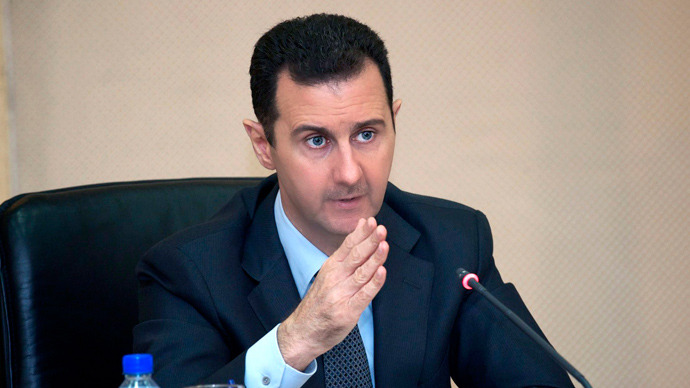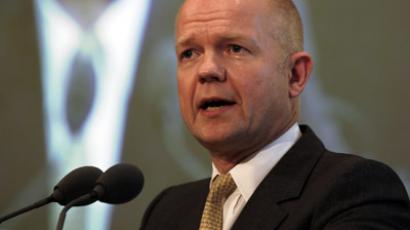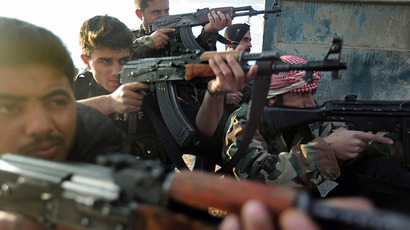‘Tradition of bullying and hegemony’: Assad lashes at UK’s ‘shallow and immature rhetoric’ towards Syria

For centuries UK has been playing an “unconstructive role” and meddling with the affairs in the region, the Syrian president said in a rare interview. His remarks come amid pledges of direct “non-lethal” aid to the armed Syrian rebels from the UK and US.
Syrians do not believe that London can play a role in resolving the conflict unless their rhetoric changes, Assad said in an interview with The Sunday Times, adding that one “cannot separate the role from the credibility, and you cannot separate the credibility from the history of that country.”
“Britain has played famously – in our region – an unconstructive role in different issues for decades, some say for centuries,” the president told the newspaper.
“The problem with this government is that their shallow and immature rhetoric only highlights this tradition of bullying and hegemony,” he said.
Britain is determined to militarize the problem not even trying to facilitate a dialogue between Syrians, Assad claimed.
Overall, Assad described his assessment of London’s role in the conflict as “working against the interests of the UK itself,” not only the interests of Syria and its people.
The Syrian leader reiterated he was open for talks with the opposition but said he would not step down unless the Syrian people decided so during next year’s presidential elections.
On Sunday UK Foreign Secretary William Hague responded to
Assad’s comments by telling the BBC’s Andrew Marr Show: "This
will go down as one of the most delusional interviews that any
national leader has given in modern times."
Hague reiterated previous claims that Britain could not rule out
arming the Syrian opposition in the future.
‘Encouraging’ shift in policy
This week’s Friends of Syria meeting brought a serious shift of international policy towards supplying and arming the Syrian rebels.
Speaking at a meeting in Rome on Thursday, Hague stressed he has not ruled out the possibility of direct military aid in the future. “That will be an important decision, of course, and has its own risks, and that is why we haven't done that so far,” he said.
US Secretary of State John Kerry announced that Washington would provide “non-lethal” aid directly to the armed Syrian rebels. In addition the US has pledged another $60 million financial assistance to the country’s political opposition.

The European Union meanwhile has formally amended its sanctions against Syria to permit the supply of “non-combat” armored vehicles, military equipment, and technical aid to the opposition, provided they are intended to protect civilians.
The shift in policy has drawn harsh criticism from the foreign
ministers of Syria and Iran. The counterparts met on Saturday,
condemning the decision to help the “terrorists spilling the
blood of Syrians and demolishing the financial infrastructure of
Syria.”
Syria’s FM Walid al-Moallem directly accused Turkey and Qatar, as well as several other countries he did not name, of supporting and funding armed terrorist groups in Syria.
Russia meanwhile said that decisions made at the Friends of
Syria meeting will intensify the two-year Syrian conflict by
encouraging rebel extremists. The moves announced "in spirit and
in letter directly encourage extremists to seize power by force,
despite the inevitable sufferings of ordinary Syrians that
entails," Russian Foreign Ministry spokesperson Alexander
Lukashevich said in a statement, echoing Russia’s official stance
that dialogue is the only possible way forward.














